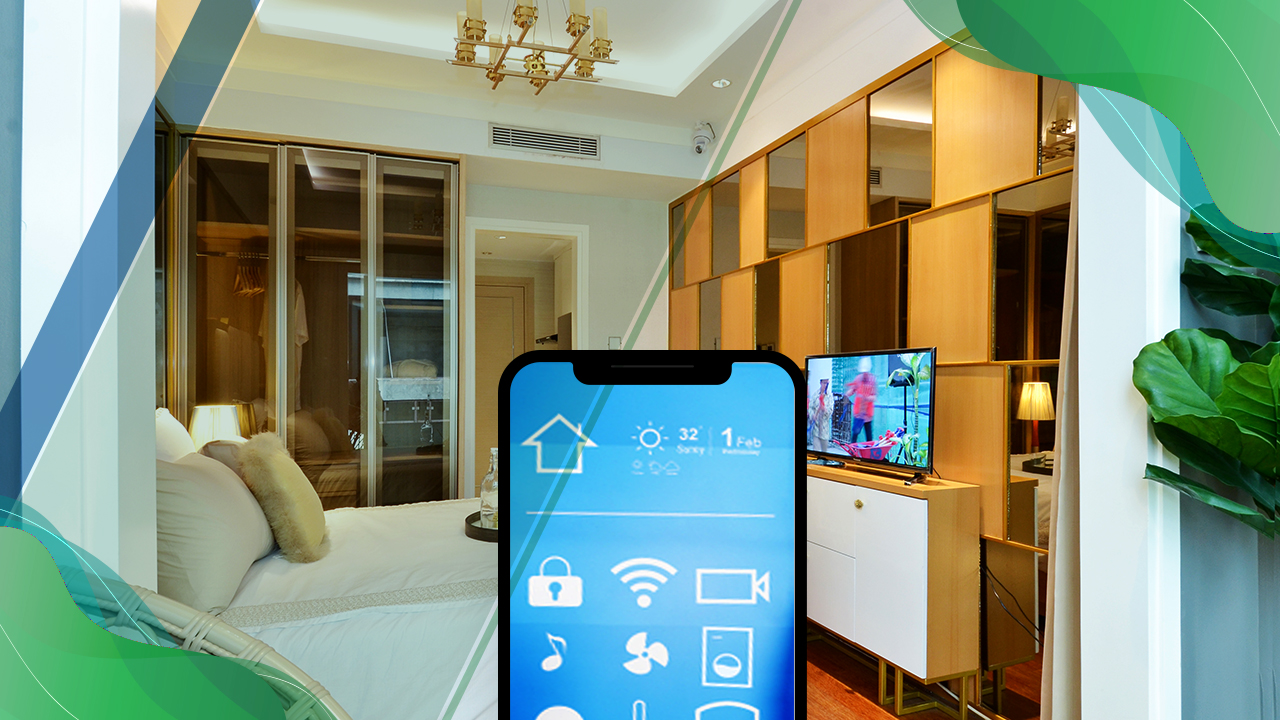Introduction
In the rapidly evolving hospitality landscape, technology for revenue management has become the cornerstone of successful hotel operations. The integration of advanced tools and systems has transformed how hotels approach the critical task of maximizing revenue. This blog explores the role that technology plays in modern hotel revenue management and how this is reshaping the industry.
Data Analytics: The Foundation of Informed Decision-Making
Predictive Analytics
At the forefront of technology for revenue management, predictive analytics has revolutionized how hotels forecast and plan for future demand. This powerful tool allows hotel revenue managers to harness historical data, market trends, and other relevant information to make informed decisions. By leveraging predictive analytics, hotels can anticipate occupancy rates with greater accuracy, identify peak booking periods well in advance, and gain insights into guest preferences. Above all, these capabilities enable revenue managers to fine-tune their strategies, ensuring optimal pricing and inventory allocation throughout the year. The application of predictive analytics in hotel revenue management has become indispensable for properties aiming to stay competitive in a dynamic market.
Customer Segmentation
Advanced data analytics has taken customer segmentation to new heights, providing a crucial edge in hotel revenue management. By analyzing vast amounts of guest data, hotels can create detailed profiles of their customers, gaining deep understanding of their preferences, booking behaviors, and spending patterns. This granular level of segmentation enables revenue managers to craft highly targeted marketing campaigns and develop personalized pricing strategies that cater to different guest profiles. In the realm of hotel revenue management, this personalized approach not only maximizes revenue but also enhances customer satisfaction, leading to increased loyalty and repeat bookings. The ability to tailor offerings to specific guest segments has become a key differentiator in the competitive hospitality landscape.
Real-Time Data
The advent of real-time data analysis has dramatically enhanced the agility and responsiveness of hotel revenue management strategies. Firstly, revenue managers can now monitor competitor pricing instantly, track market demand fluctuations as they happen, and observe booking patterns in real-time. This immediate access to crucial data allows for swift adjustments to rates and strategies, ensuring that hotels can capitalize on opportunities and mitigate potential losses quickly. Secondly, in the fast-paced world of hotel revenue management, the ability to make data-driven decisions in real-time has become a critical factor in maintaining a competitive edge and maximizing revenue potential.
Automated Systems: Efficiency and Precision
Revenue Management Systems (RMS)
The introduction of sophisticated Revenue Management Systems has automated many aspects of hotel revenue management, revolutionizing how properties approach this critical function. These advanced systems collect and analyze data automatically, processing vast amounts of information from various sources to provide comprehensive insights. Using complex algorithms, RMS recommend optimal pricing strategies based on a multitude of factors, including historical data, current market conditions, and forecasted demand. Furthermore, these systems efficiently distribute inventory across various channels, ensuring maximum visibility and bookings. By automating these processes, RMS significantly reduce manual errors and free up revenue managers to focus on strategic planning and analysis. In the realm of hotel revenue management, the adoption of RMS has become a game-changer, enabling properties to make more informed decisions and improve overall performance.
Dynamic Pricing
Dynamic pricing has emerged as a powerful strategy in revenue management enabled by advanced technology. This approach allows room rates to be adjusted in real-time based on various factors such as demand, competitor pricing, and market conditions. For hotel revenue managers, this capability ensures that their property can maximize revenue during high-demand periods by increasing rates when demand is strong. Conversely, during low-demand periods, prices can be adjusted downward to remain competitive and attract bookings that might otherwise be lost. The implementation of dynamic pricing in hotel revenue management enables properties to optimize occupancy rates year-round, striking a delicate balance between maximizing revenue per available room (RevPAR) and ensuring consistent occupancy levels. This technology-driven approach to pricing allows hotels to respond swiftly to market changes, capitalize on unexpected demand surges, and mitigate the impact of low-demand periods, all of which are crucial for effective hotel revenue management.
Forecasting and Budgeting
Advanced technology for revenue management has significantly enhanced the forecasting and budgeting capabilities of hotels. Modern Revenue Management Systems (RMS) provide accurate forecasts by analyzing past performance and current market trends. For hotel revenue managers, this capability is invaluable in planning finances more effectively, allowing them to anticipate revenue streams and allocate resources efficiently. By leveraging historical data and current market insights, these systems can project future performance with a high degree of accuracy, enabling hotels to set realistic revenue goals and develop strategic plans to achieve them. Consequently, this data-driven approach to forecasting and budgeting minimizes guesswork, providing a solid foundation for decision-making and helping properties navigate market uncertainties with greater confidence.
Machine Learning and AI: The Next Frontier
Demand Forecasting
Machine learning algorithms have taken demand forecasting in hotel revenue management to new heights of sophistication. These advanced models analyze vast amounts of data, including historical bookings, market trends, events, and even factors like weather patterns. What sets machine learning apart in the realm of hotel revenue management is its ability to continuously learn and improve its predictions over time. As new data becomes available, these algorithms refine their forecasts, providing increasingly accurate projections of future demand. Likewise, this level of precision in demand forecasting allows hotel revenue managers to optimize their pricing and inventory management strategies with greater confidence, leading to improved revenue performance and more efficient operations.
Personalization
AI-driven personalization is transforming the guest experience and opening new avenues for revenue optimization in the hotel industry. By analyzing guest data and preferences, AI can tailor offers to individual guests, customize pricing based on guest history, and recommend services that align with guest preferences. In the context of hotel revenue management, this level of personalization not only enhances the guest experience but also increases the likelihood of bookings and upsells. Revenue managers can leverage these AI-driven insights to create targeted promotions, develop loyalty programs, and implement personalized pricing strategies that maximize revenue while enhancing customer satisfaction and loyalty.
Chatbots and Virtual Assistants
The integration of AI-powered chatbots and virtual assistants into hotel revenue management strategies is revolutionizing customer interaction and booking processes. These sophisticated tools can handle customer inquiries 24/7, process bookings efficiently, and even upsell services based on guest preferences. From a revenue management perspective, chatbots and virtual assistants ensure consistent communication with potential guests, provide instant responses to pricing and availability queries, and can implement dynamic pricing strategies in real-time. Furthermore, by streamlining the booking process and providing personalized recommendations, these AI tools contribute to increased conversions and higher average booking values, directly impacting the hotel’s revenue performance.
Integration with Other Technologies
Channel Management Software
The integration of channel management software with revenue management systems has become a crucial aspect of modern hotel revenue management. This integration ensures that room rates and availability are updated across all distribution channels in real-time. Firstly, for hotel revenue managers, this capability minimizes the risk of overbooking, maximizes revenue by reaching a broader audience, and ensures consistency across all booking platforms. Secondly, the seamless synchronization between revenue management decisions and distribution channels allows for more agile pricing strategies and helps hotels maintain a competitive edge in the digital marketplace.
Property Management Systems (PMS)
The seamless integration between Revenue Management Systems (RMS) and Property Management Systems (PMS) is a game-changer in hotel revenue management, as it allows for efficient data exchange, providing revenue managers with a holistic view of hotel operations. By combining data on room inventory, guest profiles, and operational costs with revenue management insights, hotels can make more informed decisions about pricing, promotions, and resource allocation. In short, this comprehensive approach to hotel revenue management ensures that strategies are based on a complete understanding of the property’s performance and potential, leading to more effective revenue optimization.
Future Trends
Blockchain Technology
The potential of blockchain in hotel revenue management is an exciting frontier. This technology could provide transparent and secure transactions, enhancing trust between hotels and customers. Above all blockchain could streamline the booking process, reduce the risk of fraud, and potentially eliminate intermediaries, leading to cost savings and more direct control over pricing and inventory. As blockchain technology matures, it may offer new opportunities for innovative pricing models and loyalty programs in hotel revenue management.
Internet of Things (IoT)
The Internet of Things (IoT) is set to play a significant role in future hotel revenue management strategies. IoT devices, such as smart thermostats and occupancy sensors, can provide real-time data on room usage and guest behavior. For hotel revenue managers, this granular data can help optimize energy consumption, improve the guest experience, and refine pricing strategies based on actual room usage patterns. The insights gained from IoT devices could lead to more dynamic and responsive pricing models, allowing hotels to adjust rates based on real-time demand and usage data, further enhancing revenue optimization efforts.
Conclusion
The role of technology in modern hotel revenue management cannot be overstated. From data analytics and automated systems to AI and machine learning, these technological advancements are providing hotels with the tools they need to optimize their pricing strategies, improve operational efficiency, and ultimately maximize revenue. As we look to the future, it’s clear that the integration of technology in hotel revenue management will only continue to grow in importance.
To sum it up, for hospitality professionals, staying abreast of these technological trends and understanding how to leverage them effectively will be crucial for success in the evolving landscape of hotel revenue management. Those who embrace these innovations and integrate them skillfully into their revenue management strategies will be well-positioned to thrive in an increasingly competitive market, driving their properties towards greater profitability and success.




